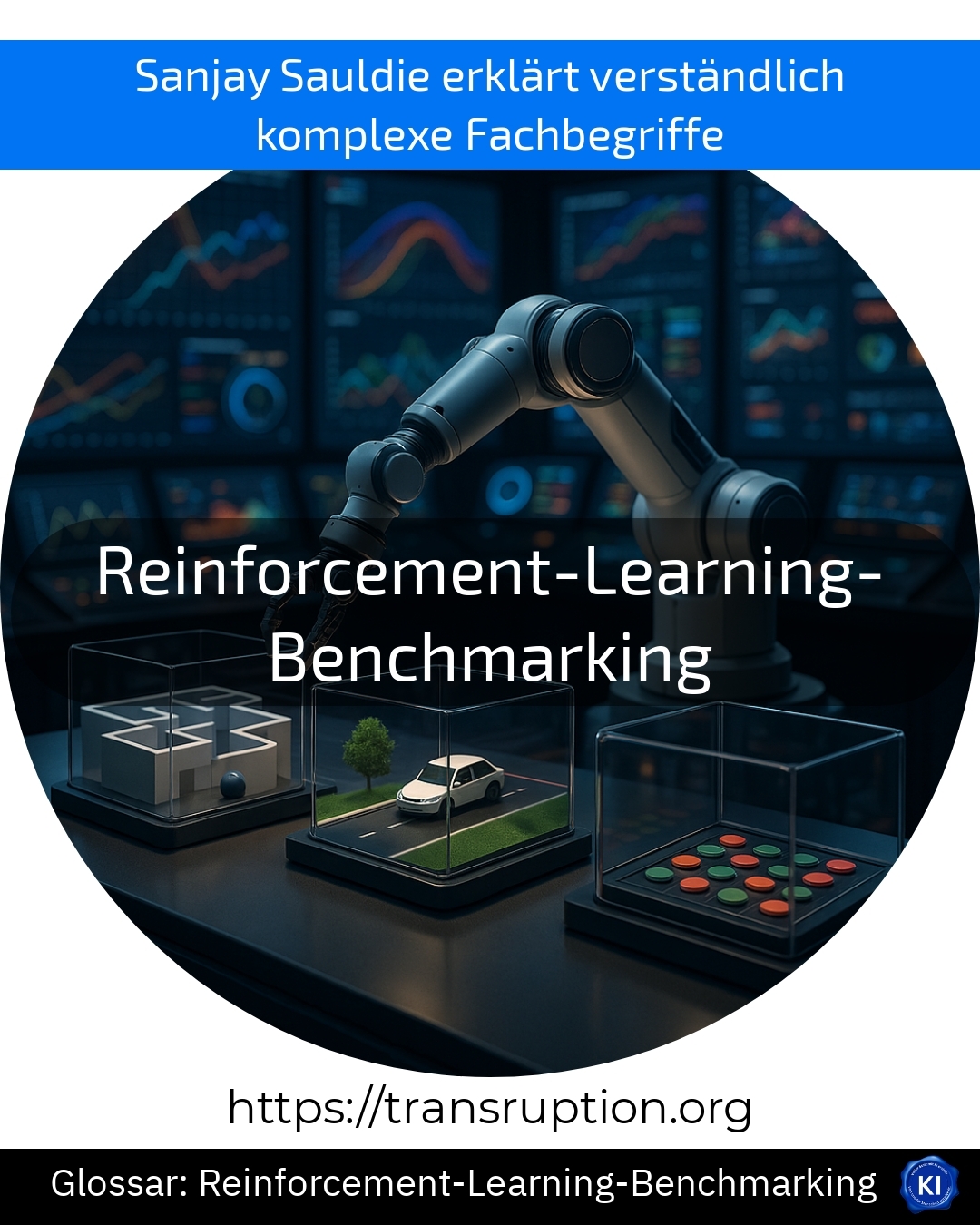Reinforcement learning benchmarking falls into the categories of artificial intelligence, automation and Industry and Factory 4.0. The term describes an important step in the development and evaluation of reinforcement learning algorithms. In reinforcement learning, a machine learns how to perform tasks as well as possible through trial and error and rewards. In this context, benchmarking means that different algorithms are compared with each other and evaluated using standardised metrics.
Imagine that a robot in a smart factory is supposed to sort parcels independently. Various software solutions with reinforcement learning are developed to find the best strategy for this. Through reinforcement learning benchmarking, the developers can find out which algorithm works the fastest, most reliably and most efficiently.
Benchmarking therefore ensures that companies can make informed decisions before implementing new AI solutions in production. Ultimately, the aim is to create transparency and comparability when selecting AI models - similar to how a car manufacturer tests different models for their performance. Reinforcement learning benchmarking helps companies to find the best solution for their automation processes.















